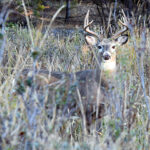Home »

Bill Green honoured for fisheries work
Kootenay-Columbia Green Party candidate Bill Green was in Portland, Oregon last week receiving a prestigious conservation award from the American Fisheries Society.
Green accepted the William E. Ricker Resource Conservation Award on behalf of the Ktunaxa and Secwepemc (Shuswap) Nations, joint recipients with the Okanagan Nation Alliance and 15 American Tribes.

The Ricker Award recognizes singular accomplishments or long-term contributions that advance aquatic resource conservation at a national or international level.
Green is the founding executive director of the Canadian Columbia River Inter-tribal Fisheries Commission, established by the Ktunaxa and Secwepemc Nations to protect and restore aquatic ecosystems and return salmon to their historic range in the Columbia and Kootenay River systems.
The cross-border coalition of First Nations and Tribes is being honored for their significant leadership and vision in restoring ecosystem function and resiliency to the Columbia River watershed, the American Fisheries Society said in making the award.
The coalition’s active engagement in renewal of the Columbia River Treaty will help integrate ecosystem function as a co-equal treaty objective, the society noted.
“It has been an incredible honour and learning experience over the past 20 years to work with the Ktunaxa and Secwepemc communities,” said Green, a fisheries biologist. “Bringing back the salmon is of profound cultural importance to them, and will produce ecological and economic benefits for all people.”
Salmon runs were cut off from the Upper Columbia in the 1940s when the Grand Coulee dam was built in Washington state. Subsequent dams installed in later decades added further barriers to traditional salmon migration in the Columbia watershed.
Led by Green, the Canadian Columbia River Inter-tribal Fisheries Commission has negotiated agreements with the Columbia Power Corporation to provide fish passageways at their hydro plants.
“Our target is to have salmon running at Trail and Castlegar within five years, then soon after into the Arrow Lakes and the Slocan,” Green said. “First Nations are working to have salmon as far upstream as the headwaters at Columbia Lake by 2040.”
The ambitious long-term plan calls for re-introduction of chinook salmon initially, followed by sockeye and steelhead. “But this isn’t just about salmon,” Green added. “Bull trout, sturgeon, burbot and other native fish species will also benefit.”
The 2,000-kilometer Columbia, the biggest river system in the Pacific Northwest, rises at Canal Flats and flows into the Pacific at Astoria, Oregon. Its massive watershed encompasses rivers and streams in B.C. and seven U.S. states.
The American Fisheries Society, founded in 1870, is the world’s oldest and largest organization dedicated to fisheries science and conservation. The Ricker Award is named for the late William Ricker, a world-renowned Canadian fisheries scientist.
Submitted







